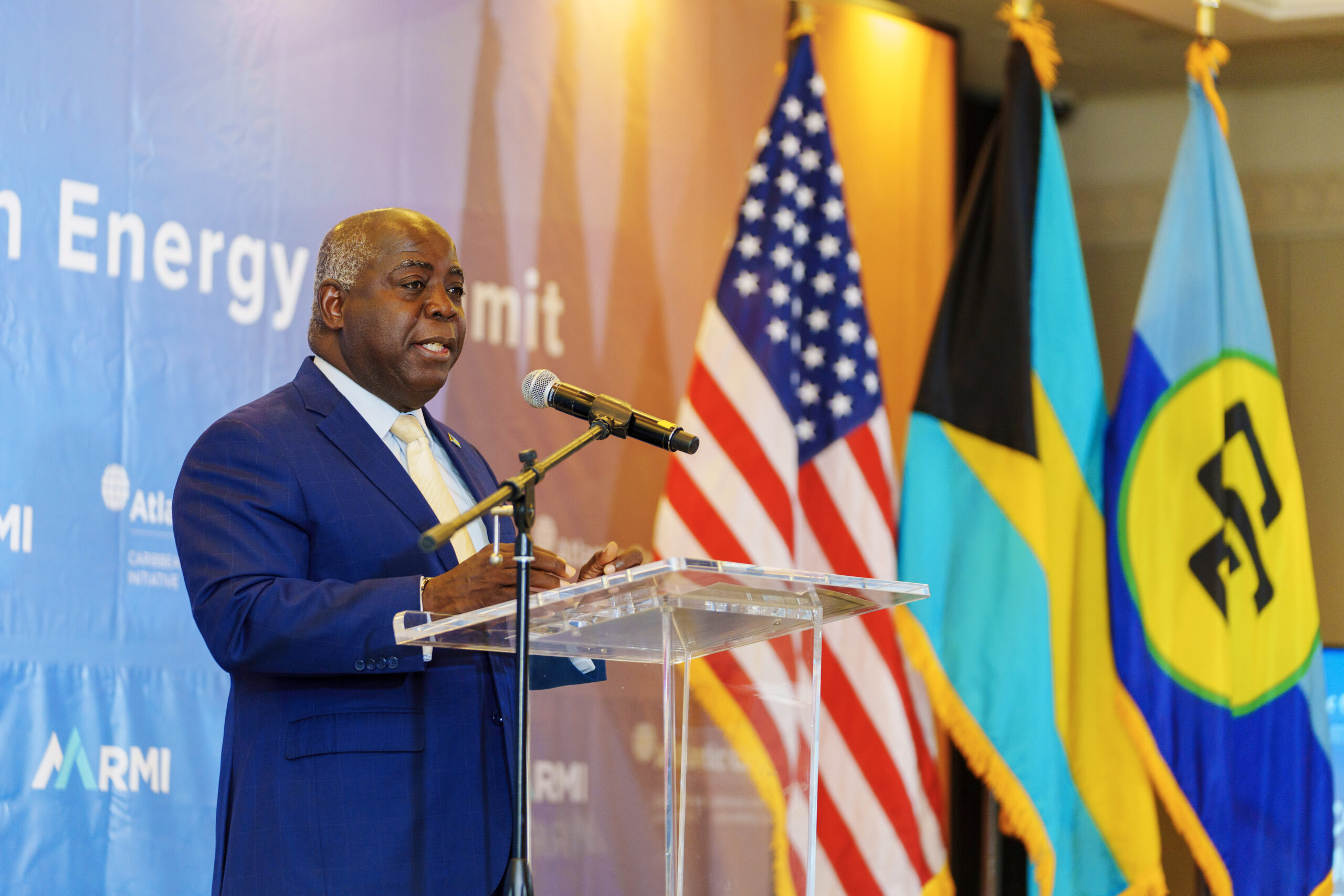Good morning, ladies and gentlemen.
It brings me great joy to welcome you to our beautiful country, and to the PACC 2030 Climate Resilient Clean Energy Summit.
You know, it never occurred to me, when I was a barefoot young boy, running around Cat Island (one of our exquisite Family Islands) – running around and occasionally, it must be said, causing not a small amount of trouble – that one day I would not only have the privilege of leading my country, but also have the honour of hosting esteemed regional leaders and senior US officials at a summit like this one.
I had a big imagination – but not quite big enough to conjure up a moment like this one!
But here we are. And for me, what is most exhilarating about coming together is the energy that is palpable in this room – the feeling that we share a determination to make a difference.
Because just – as a young boy on Cat Island – I could not have anticipated hosting a gathering like this one, nor could I have foreseen that our beloved country, our whole way of life, all the people and communities we love, would face an existential threat caused by a changing climate.
Colleagues, friends: our determination to build progress must match or exceed the enormity of the threat we face in this region.
In just the past decade, four hurricanes have caused billions in damage to The Bahamas – storms have wiped out homes, schools, hospitals, and vital infrastructure. We’ve lost friends and loved ones — tragedies made more traumatic by the knowledge that storms are only growing in intensity. Almost a third of our national debt is due to the impact of hurricanes and other climate-related impacts.
Small island nations, in our region and beyond, may be uniquely vulnerable, but the perils of climate change are now manifest in every nation.
Climate change impacts are not contained by borders.
Of this we needed no further reminder, but this week brought a fresh illustration, anyway, as wildfires in Canada – where they are likely experiencing their worst fire season in history — caused hazardous air quality for millions in the United States.
Climate change is putting pressure on human health, on food production, on borders, and on stability and security.
But even as we must be clear-eyed about the magnitude of the perils, we should not lose sight of the fact that this moment holds great promise.
Preventing the most dire climate outcomes requires achieving net zero emissions by 2050, and producing negative emissions after that, by removing carbon from the atmosphere.
Decision-makers both public and private are finally moving away from the belief that change comes at the expense of economic growth – and starting to understand that robust climate action can spur innovation, increase efficiencies, create jobs, and improve living standards.
The transition to clean energy is disruptive, expensive, and complicated — but we have two big things going for us: incentives, and human ingenuity.
Many of our countries are forging ahead. In The Bahamas, we are working on an array of mitigation measures; we are adopting solar technology on many of our Family Islands; we are negotiating for cleaner and more affordable energy for New Providence, and we are working on a new facility to help small and medium-sized businesses adopt green technology. We look forward to hosting an OAS sustainable development and climate finance meeting here, in October of this year. We are advancing efforts to pilot ocean thermal energy conversion (OTEC) across 9 islands, to support the provision of green energy and clean, affordable drinking water that is carbon neutral to produce.
We want to do so much more – but in order to make the most of new and changing tools and technology, we need to collaborate in partnerships that reach across borders.
That is why the US-Caribbean Partnership to Address the Climate Crisis, launched by Vice-President Harris last June, is so important.
The breadth of the partnership’s ambition is critical – because addressing the climate crisis requires action across so many fronts. As we undertake our own clean energy transitions, we must also strengthen our disaster response capacity, build more climate-resilient infrastructure, and undertake critical conservation projects.
Given the scale of these challenges, and the ambitious emissions reductions goals our countries have committed to meeting, we are grateful for regional cooperation and for the expertise, resources, and commitment that the United States is bringing to the table.
When we consider what is at stake, we are determined not to scale down our ambitions – but instead to scale up the financial and technical capacity necessary to meet those goals.
I know everyone at this Summit is ready to roll up sleeves and dive in, to make the most of this partnership. We want to leave here with tangible progress and with roadmaps for the way forward.
So, let’s get to work – together, we can take advantage of the promise of this moment, play our part in reducing global emissions, and create a stronger region and a more resilient hemisphere.
Thank you.
